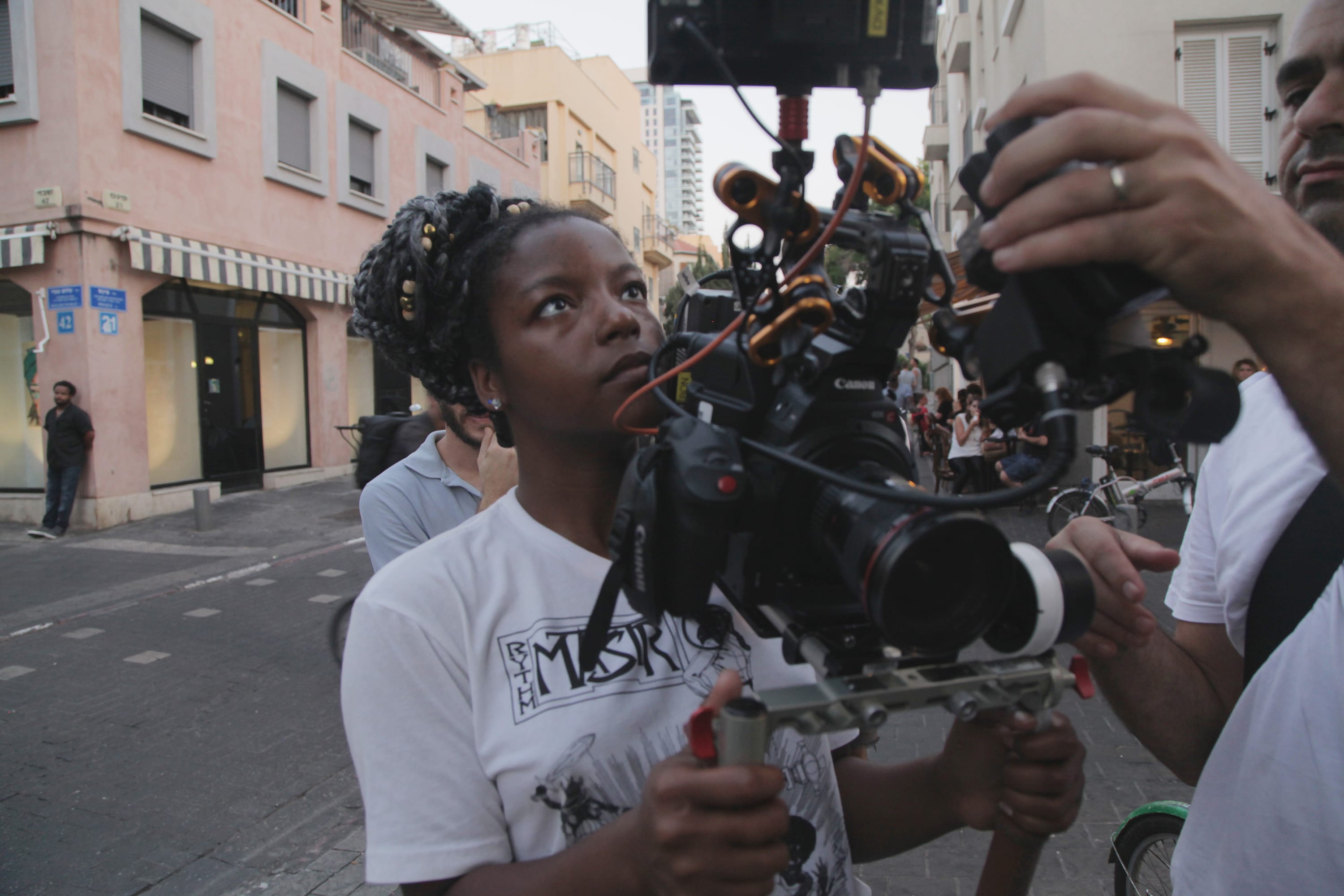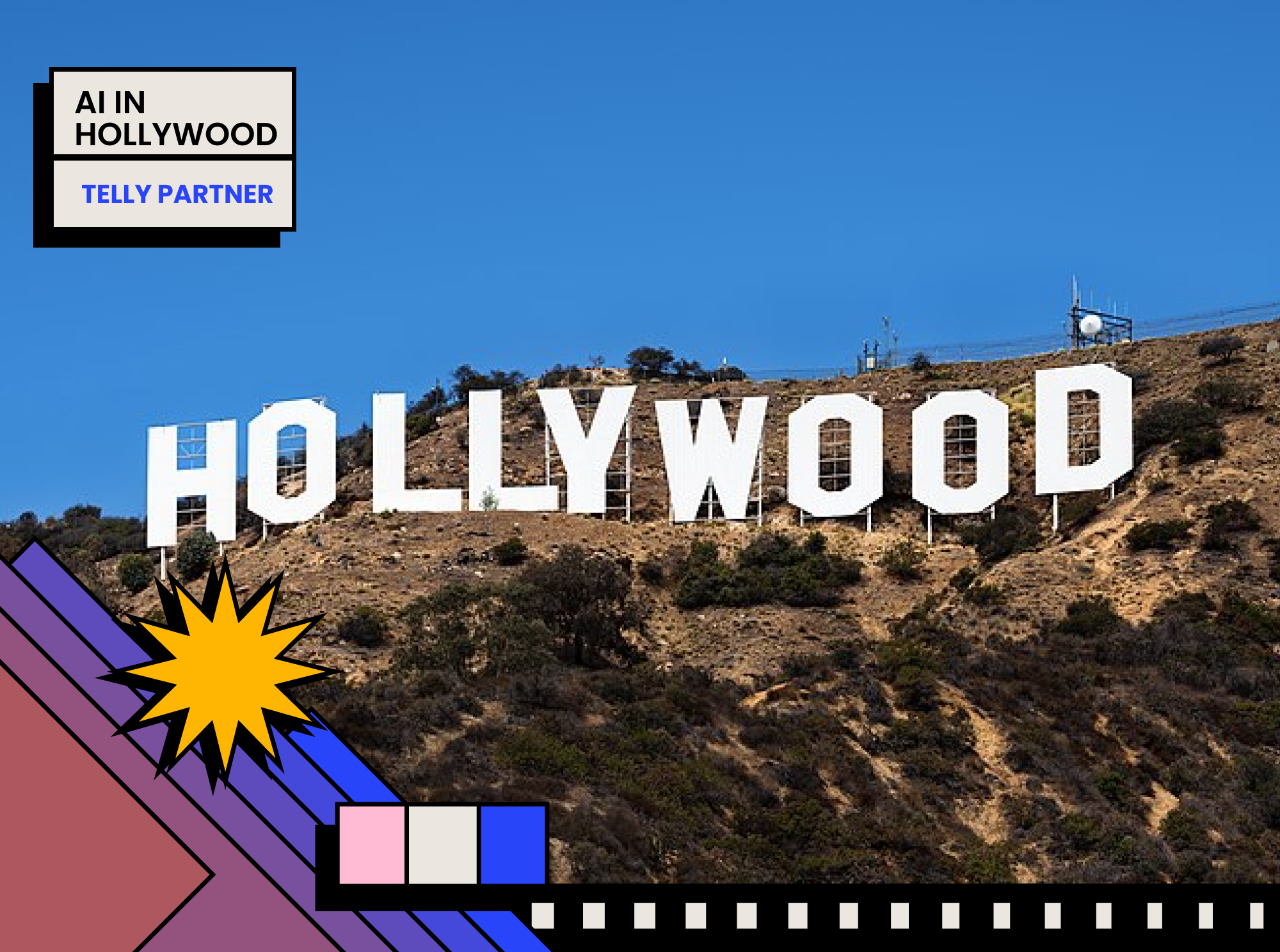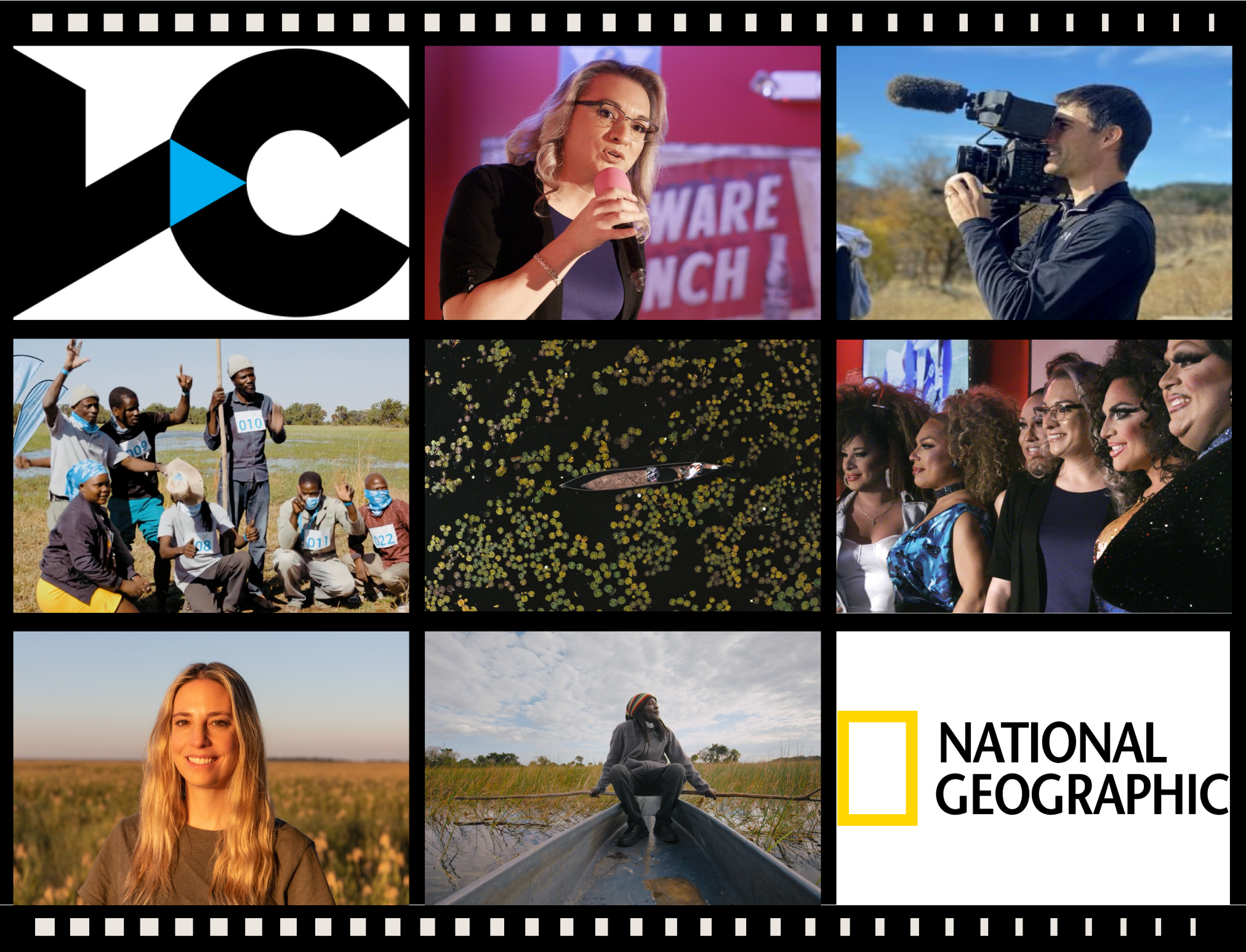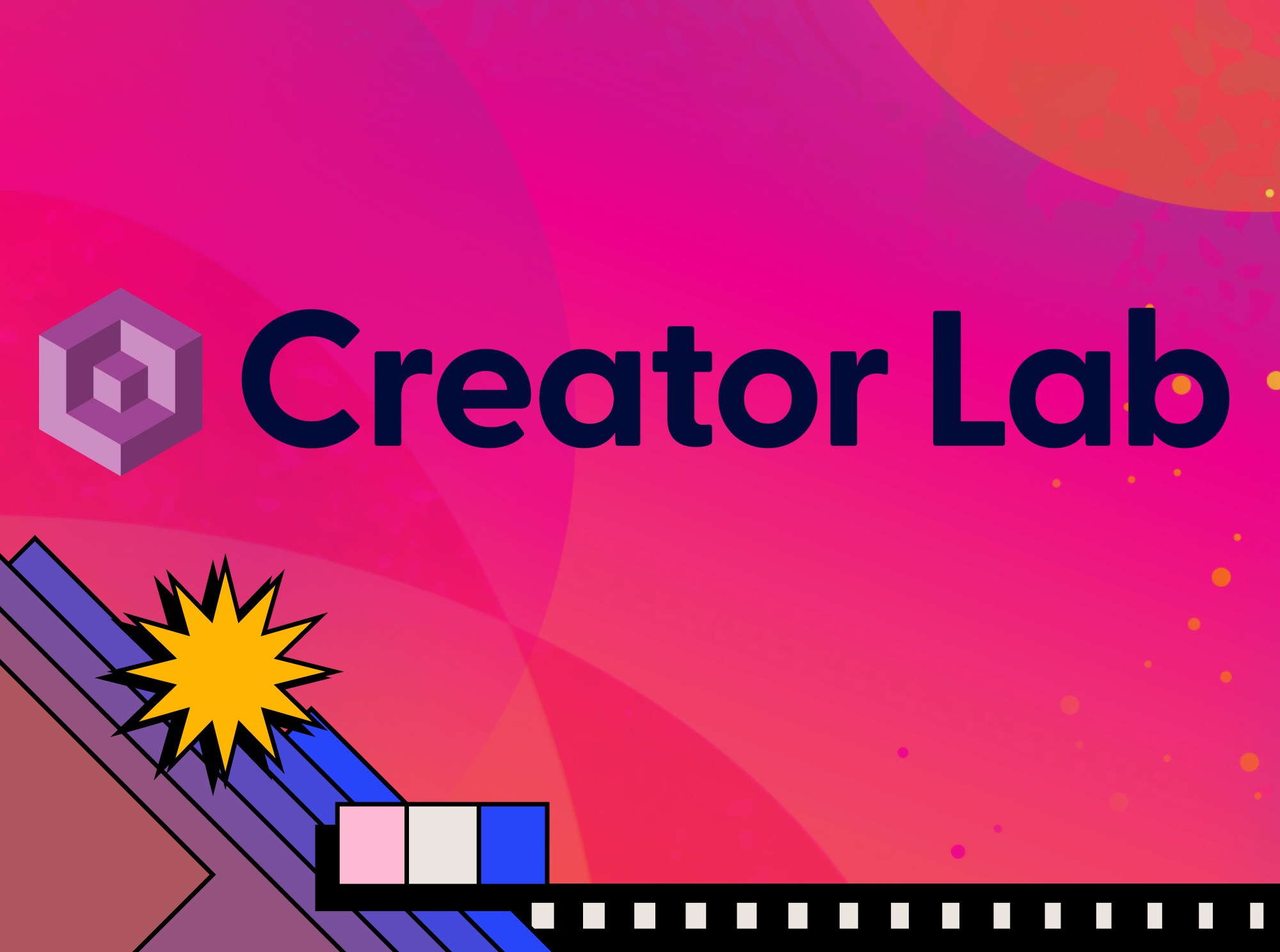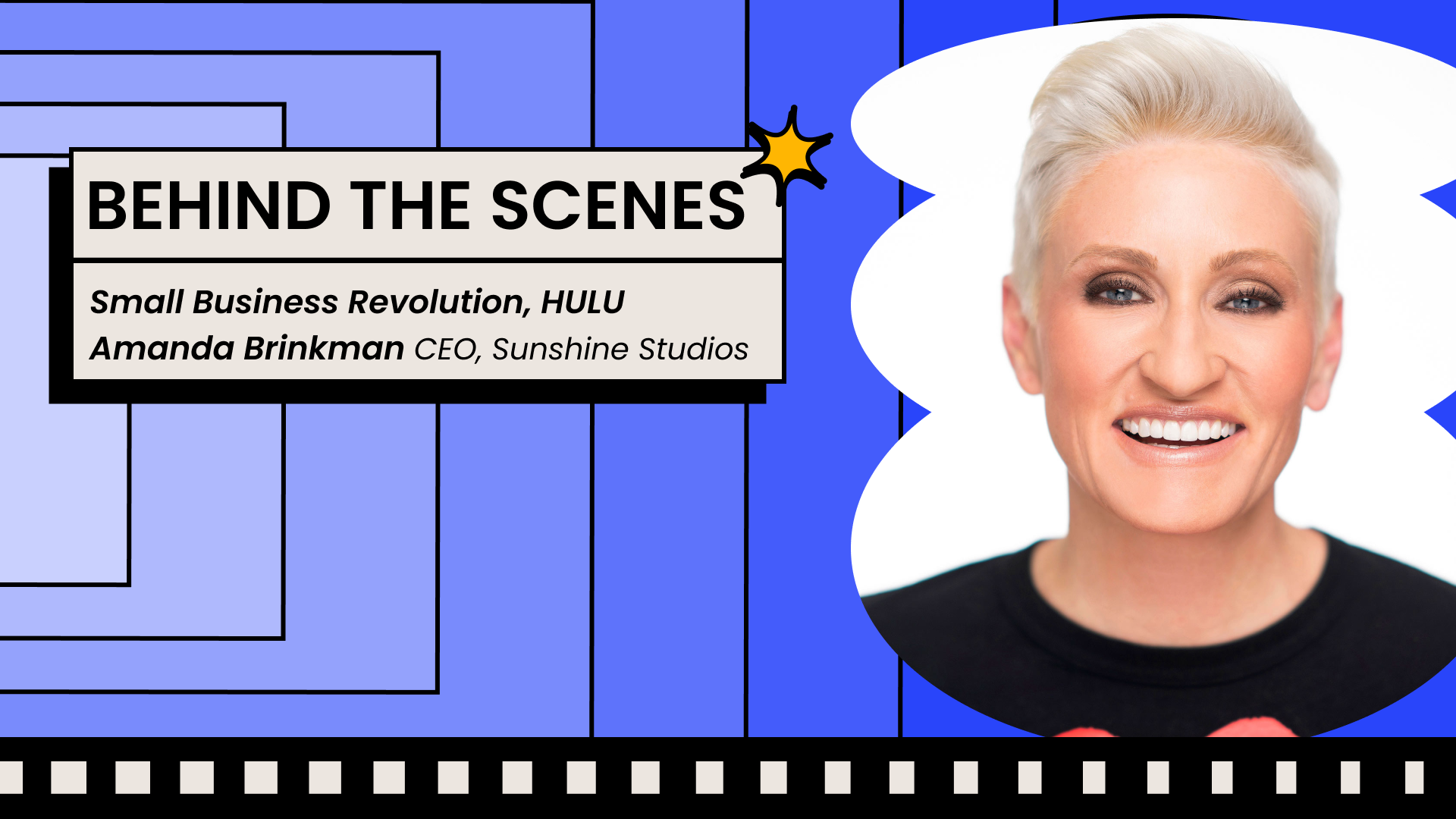This season, we are beyond thrilled to have added Ghetto Film School (GFS) to The Telly Awards partner community. We are even more excited to wish them a very happy 20th birthday! With that in mind, we sat down with GFS CEO, Stosh Mintek, to hear more about their incredible work supporting emerging creative talent for over two decades!
Stosh has worked at GFS since 2004. As Program Director (2004-2008), he oversaw production of GFS international film shoots in Paris, Kampala, and Rio de Janeiro, as well as hundreds of short student films in New York City. As Director of Development and Special Projects (2008-2012), Stosh supervised the implementation of $2.5 million in capital funding to build the South Bronx Post House, and designed and launched GFS MasterClass, a unique initiative that delivers GFS’ award-winning arts education model on a global scale. In 2012, Stosh led the activation of Digital Bodega (DB), a full-service production company run by top GFS alumni. DB operates out of the South Bronx Post House, creating bespoke media solutions and original content for corporate clients like Sony, Nike, Atlantic Records and JP Morgan. In 2014, Stosh relocated to Los Angeles to become Executive Director of GFS LA, the west coast division of GFS. In its first 5 years of operation, GFS LA has served over 2,500 young Angelenos with outstanding film training and resources through its signature programming, and has student-produced international short films in Tokyo, London, Tel Aviv and Rome (Summer 2019). In 2018, Stosh was promoted to the role of CEO at GFS, succeeding GFS’ founder and president Joe Hall. Today, Stosh oversees GFS’ international operations in NYC, LA and London, and works with board leadership to secure resources, execute strategic plans, and actualise GFS’ mission: to educate, develop and celebrate the next generation of great storytellers.
You’re celebrating 20 years this year — over these years how have you all changed in the way that you work and function?
Yes, it’s definitely been a wild time to celebrate our 20th anniversary! To answer your question, I
would start by emphasizing the one thing that hasn’t changed about GFS since day one, which
is our approach to creative education and youth development. We were founded to provide the
young people living in the South Bronx and the surrounding community with high-quality
training, resources and support in order to better equip them with the tools necessary to tell their
stories.
We have always viewed our students as artists, focusing on their talent and ambition, rather
than treating them as “at-risk” or “disadvantaged” youth. In doing so, we have
established authentic relationships that have led to remarkable outcomes, and a creative
education model that has served more than 10,000 young people nationwide.
As for what’s changed- we’ve expanded considerably. What began as helping teenagers in the
South Bronx find their voices and establish themselves as artists, has now become a multi-city
venture. In 2014, we launched another full-time operation in Los Angeles and most recently, we
have launched a location in London. We’ve also added robust college prep support to our
programming and are proud to see GFS alums enrolling in top schools like Yale, Stanford, NYU
Tisch and USC.
In 2015, we began The Roster program as a go-to talent identification resource for the creative
industry. The Roster serves over 5000 diverse early-career creatives with year-round training,
networking and job placements at top studios, production companies, agencies and other
creative industry businesses in NYC and LA.
Another successful addition to GFS has been our recently opened consulting practice that
works with major institutional partners like AT&T, Bloomberg, the Motion Picture Association
and others to build innovative large-scale solutions at the intersection of creativity and
inclusion. Through these opportunities, we can leverage our insight to help shift the larger
national perspective on the arts, education and business.
Since you began, what changes have you seen in the industry? How have challenges and opportunities shifted?
When GFS was founded in 2000, we didn’t have a single connection or relationship to the
industry. This began to change when incredible filmmakers like David O. Russell got involved as
board members.
In 2010, the acclaimed ad agency, Wieden+Kennedy New York, took on GFS as a partner and
top-tier client. Over the last 10 years, WKNY has led two full rebranding campaigns for us.
They’ve designed and implemented classes that are now tentpole courses in the curriculum and
have contributed generous grants to cover the costs of our free training programs for young
people. Thanks to the stewardship of our board chair Neal Arthur, WKNY’s managing director,
we’ve also mapped out a larger global strategy that will serve GFS for many years to come.
By using the WKNY partnership as a model for working with industry leaders, we’ve seen a
whole new cohort of creative companies come on-board to invest in key areas of our work.
While the industry has gone through some titanic shifts in recent years, our strategy remains the same- identify the right people in the right places who share the same core mission and build
long-term mutually beneficial relationships with them.
There are too many wonderful supporters to name here, but we’ve been especially impacted in
recent years by JJ Abrams and his production company, Bad Robot, the incredible coast-to-
coast team at NBCUniversal, Courteney Monroe and National Geographic, and David Rubin
and the Academy of Motion Picture Arts and Sciences. These are real people who contribute
their own time and expertise to help our students succeed and ultimately, help move the
industry in a positive direction. We couldn’t do this work without them.
What do you think is the secret to having a successful, creative team?
When it comes to building a successful creative team, previous experience is overrated.
At GFS, we tend to hire people who come in with the right motivation and a willingness to learn
on the job, rather than a flashy resume. That approach allows us to launch big, ambitious new
projects – like taking our students overseas to make films in foreign countries, as we do each
year in our Thesis Film course – while always encouraging and instilling a “learning
mindset” within our organizational culture.
With 20 years under our belt, we now have a vast pool of talented alumni whom we can hire
back as teaching artists, project-based employees, and executive leaders. In fact, nearly 50% of
our full-time employees are former students. This is an incredible asset to the organization as
we continue because we have a deep base of institutional knowledge and shared values that
serve as a common foundation.
I’ll also pass along some good advice I got early on this year when the pandemic was just
starting to jump off: “You never know what your team is made of until you face a crisis together.”
Truer words were never said and I’m proud to report that our team is as tenacious, driven and
focused as ever on our mission and work. They’ve truly gone above and beyond to face this
unique challenge and delivered outstanding services and support to our students when they’ve
needed it the most.
What drew you to this work? How would you explain the magic of storytelling?
As a little kid growing up on a sheep farm in Wisconsin, my family was basically living off the
grid- but we had a VHS camcorder, which allowed us to make our own home videos. With help
from my very patient parents, I started directing short films when I was around 6 years old. I
created a variety of films like action adventures, superhero dramas, musicals, and comedies.
The joy of inventing a story, realizing it on camera, and then sitting down and watching the
finished product had a profound effect- one I continue to love to this day.
The camcorder also allowed us to watch Hollywood films in our own living room and that was
another game-changer growing up in a very rural, remote place. Movies became this incredible
bridge to the bigger world, exposing all of the majesty and wonder that was out there. I probably
watched movies like “Raiders of the Lost Ark” and “Back to the Future” over a hundred times
when I was little, and they never lost their ability to transport me into a fully realized vision of the
larger world beyond our little farm.
Therefore, when I applied to a summer teaching job at Ghetto Film School sixteen years ago, I
was bringing a certain amount of formal training from my days as a film major at Yale. More
importantly I was coming in as a genuine lover of film and as soon as I met my first class of
students, I realized we all had the same passion for storytelling. In between classes we’d get
into spirited debates about our favorite filmmakers or our Top 5 Lists, and the conversation
always circled back to shared love for the craft. It’s a love that unites the GFS extended family
of staff, students, alums and supporters to this day.
How have you all shifted in this turbulent year? Are there things you have changed that you think will benefit the way you function even after the world is back to some version of normal?
Great question! Yes, we had to act quickly and decisively in the face of the pandemic this
spring and did so with a huge assist from our fantastic board of directors.
As lockdown began in March, we gathered our teams to review our plans for the year in order to
determine what we should continue doing, what we would have to modify or stop, and what new
initiatives or projects we could introduce.
This led to a number of new innovations at GFS, including creative assignments that enabled
our students across all locations to capture and share what it feels like to live during this
moment, an assignment our board member, Matthew Hiltzik helped design. We also launched
an ongoing virtual speakers’ series for our students featuring board members like the great
filmmaker, Lee Daniels, Dean Sheril Antonio of NYU Tisch, and Universal Pictures President,
Peter Cramer.
One of the biggest challenges we faced was how to support our students in the completion of
their annual thesis project, which was scheduled to shoot on-location in South Korea this past
August. With help from board member and Thesis executive producer, Erika Olde, our students
redesigned their shoots to take place in Los Angeles and upstate New York, with licensed
health vendors on-set to ensure safety throughout the productions.
We also completed a major strategic plan with support from our board member, James
Murdoch, which will serve as a blueprint for growth and service at GFS over the next five years.
Additionally, our board members, Tiffany R. Warren of Sony Music and Katherine Oliver of
Bloomberg Associates, were busy all summer lining up crucial funding sources and relief aid to
help us cover costs that kept the wind in our sails.
At the end of the day, the changes we’ve implemented and plans we’ve made this year are
guaranteed to have a lasting and beneficial impact on our work moving forward. We are excited
for a very big and bright new decade ahead!

